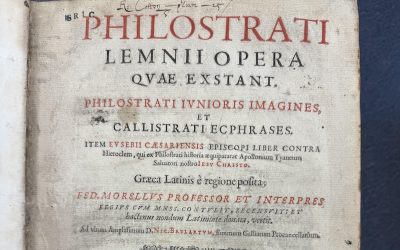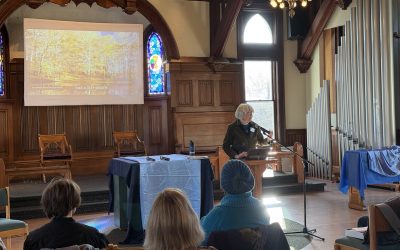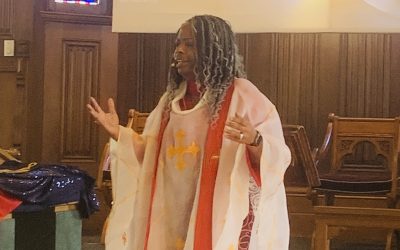Jinee Lokaneeta received the C. Herman Pritchett Award
September 2021 – Drew University Professor and Chair of Political Science and International Relations Jinee Lokaneeta has received a prestigious honor for her book tackling police interrogations in India.
The Truth Machines: Policing, Violence, and Scientific Interrogations in India, released in 2020, was the co-winner of the C. Herman Pritchett Award, given annually by the Law and Courts Section of the American Political Science Association for the best book on law and courts. Lokaneeta formally received the award in a virtual ceremony last month.
“This recognition is an acknowledgement of the importance of my work at two levels—at the level of discipline and in terms of the moment we are in. I think my work is a reflection of a larger conversation that is currently going on within political science and academia about the significance of critically engaging with the urgent and challenging problem of our times,”said Lokaneeta, who received faculty research grants from Drew that helped her to travel for the book.
“Political science in general has not focused on torture, policing, and state violence until recently. It is only in the last few years, in part due to the impact of the Black Lives Matter movements, that police brutality, state violence, and the disproportionate impact of violence on Blacks, other minorities, and those historically marginalized, has become a focus of attention in the U.S,” she explained.
While the moment in the U.S. lines up with the book’s topic, Lokaneeta wanted state violence, policing, and rule of law in India, specifically, to get attention.
“It’s a testament to the critical scholarship and inspiring civil liberty and democratic rights activists whose insights have shaped my work,” she said.
For Lokaneeta, her attachment to her Drew classrooms was integral in crafting the book.
“I can very confidently say that Truth Machines in its current form would not have been written if I wasn’t teaching a course on Policing and the Rule of Law,” she said. “The course allowed for some of the debates on state, rule of law, and policing to be introduced in a more theoretical, interdisciplinary, and comparative sense.”
“It was my first class of honors students in 2016 who encouraged me to think more about how to connect the debates on state to those of rule of law and policing. Some of my courses are closely related to my research and students have also directly helped me as research assistants for both my books, and I’d love for them to be even more centrally involved.”



